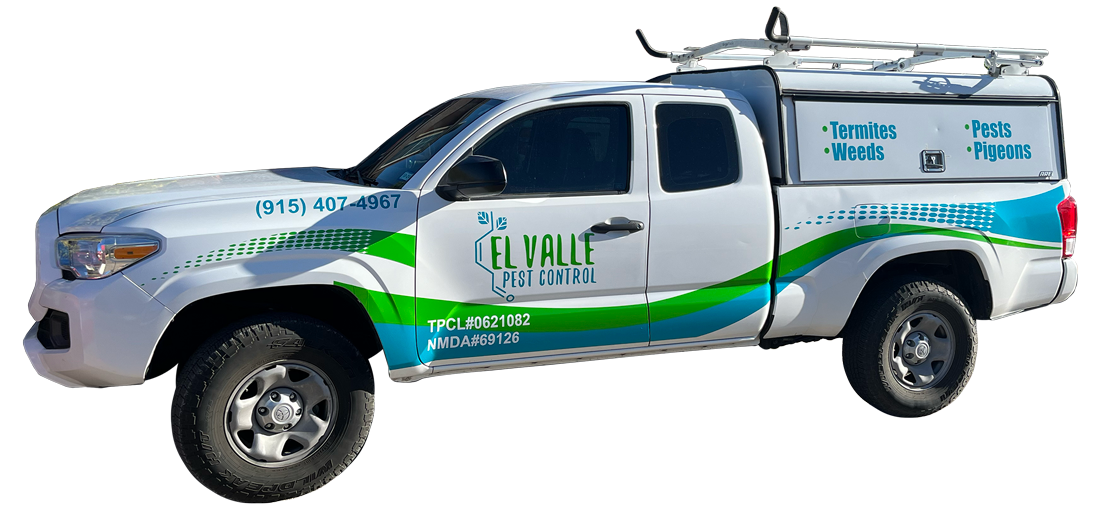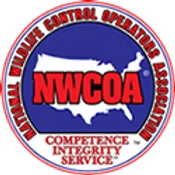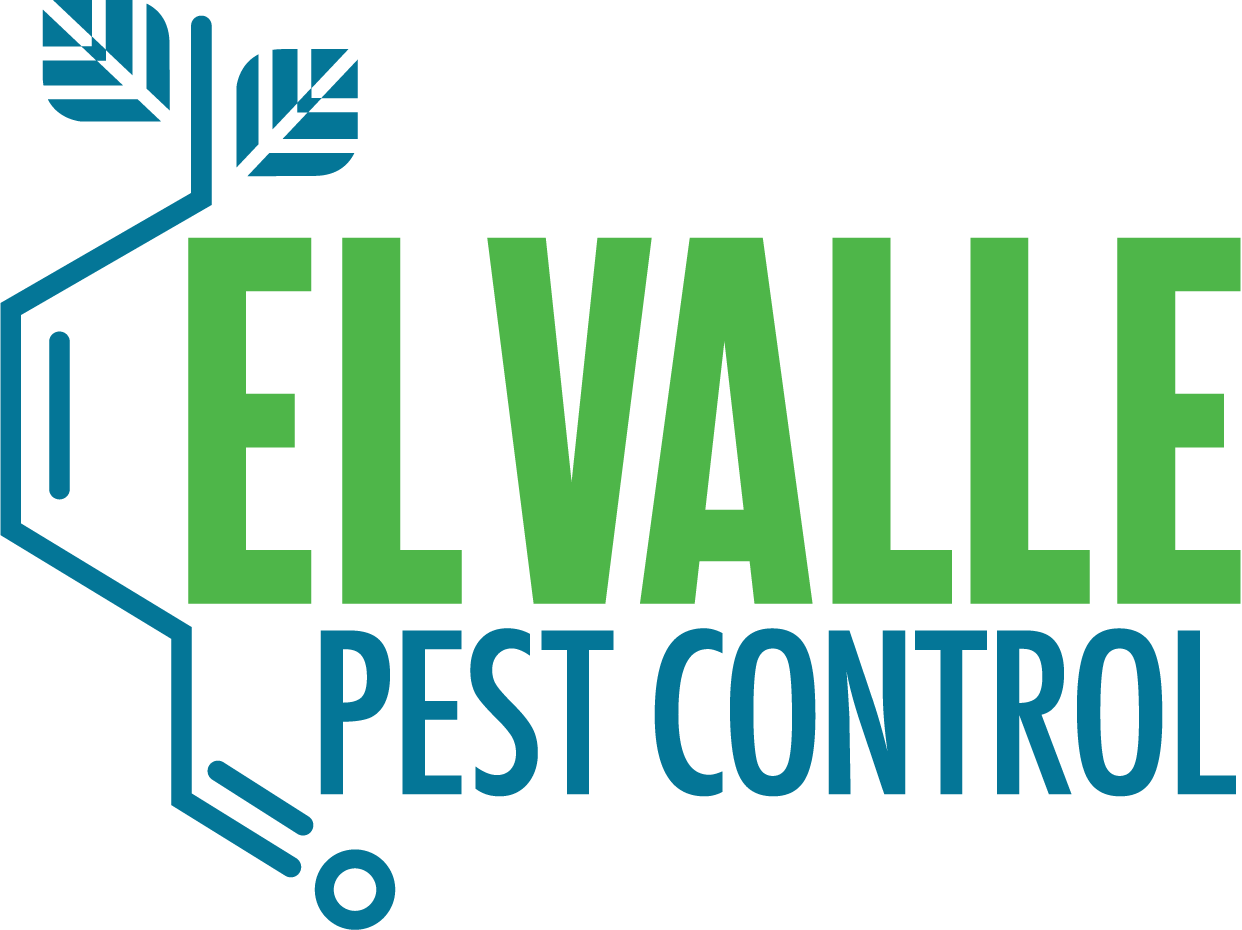- Home
- Pest Control
Skunk Control
Complete and Effective Pest Control Services in El Paso, TX
SKUNK REMOVAL
Skunks are a common type of wildlife that are found throughout El Paso, TX, and can be a nuisance when they invade residential or commercial properties. Here is some information on skunk biology, behavior, and control strategies, as well as why trapping should be avoided as a control method.
Skunks are usually harmless, other than their foul odor spray. They are omnivores (eat plants and insects) and are mostly nocturnal. They can become pests under specific circumstances, such as:
- Skunks digging holes in yard and causing lawn damage
- Skunks living in basement, under a deck, porch, shed or other structure
- Pets or people sprayed by skunks
Skunks are mammals that are known for their distinctive black and white striped fur. They are about the size of a house cat and can weigh up to 14 pounds. Skunks are omnivores, which means they eat both plant and animal matter. They are primarily nocturnal, but can be active during the day in some circumstances. Skunks are known for their ability to spray a pungent and unpleasant-smelling liquid from their anal glands as a defense mechanism.
Skunks are generally non-aggressive animals, but they can become aggressive if they feel threatened. They may dig through garbage cans, dig holes in lawns, and burrow under buildings or other structures. Skunks are attracted to areas with readily available food sources, such as pet food left outside, and areas with good cover, such as piles of brush or other debris. Male skunks are usually solitary, while female skunks spend maternity season caring for their young alone.
Read More
Despite their reputation for the strong odor they emit, skunks provide several benefits to the ecosystem. Here are some of the benefits derived from skunks:
Insect Control: Skunks are natural insect predators and help control populations of various insects and pests. They have a particular fondness for insects such as beetles, grasshoppers, crickets, and grubs. By feeding on these pests, skunks contribute to the natural balance of the ecosystem and can help protect gardens, crops, and lawns from excessive insect damage.
Rodent Control: Skunks also play a role in controlling rodent populations. They have been known to prey on small rodents such as mice, voles, and even young rats. By helping to regulate rodent numbers, skunks assist in reducing potential damage to agricultural crops and minimize the risk of rodent-borne diseases.
Scavengers and Clean-up Crews: Skunks are opportunistic feeders and will scavenge for food, including carrion and leftovers. They assist in the natural recycling of organic matter by consuming carcasses and other decaying materials. By doing so, skunks help keep the environment clean and prevent the spread of diseases that may be associated with decomposing organic material.
Seed Dispersal: Skunks inadvertently contribute to seed dispersal. When they consume fruits and berries as part of their diet, they may excrete the seeds elsewhere, aiding in the dispersion and germination of various plant species. This helps promote biodiversity and the growth of new vegetation in different areas.
While skunks provide these ecological benefits, it’s important to remember that they can also cause problems if they take up residence near human dwellings. In such cases, it is advisable to seek professional assistance to manage skunk populations and minimize any potential conflicts.
Control Strategies
There are several control strategies that can be used to manage skunk populations in El Paso, TX. One of the most effective strategies is to make the area unattractive to skunks by removing potential food and shelter sources. This can include securing garbage cans, removing brush piles, and sealing off potential entry points into buildings or other structures.
Trapping skunks may seem like the easy way to go, however we do not recommended that approach due to the potential harm it can cause to the animal. When trapped, skunks can become stressed and may spray their defensive odor, which can make them more difficult to handle. Additionally, skunks are territorial animals. When relocated and release other animals may kill them and trapping can separate a skunk from its young, which can decrease the young skunk’s chances of survival.
Instead of trapping, it is recommended to use exclusion techniques that allow skunks to exit a structure or area but prevent them from re-entering. This can involve the use of exclusion barriers, such as wire mesh or sheet metal, that are installed over potential entry points. It is important to remember that skunks should be treated humanely and non-lethal solutions are completely doable.
In some cases, it may be necessary to contact a professional wildlife control company to handle a skunk infestation.
Common Questions
FAQs about Skunk Control in El Paso
There are several signs that indicate the presence of skunks. The most common sign is a strong, unpleasant odor that lingers around your property. Skunks also dig small cone-shaped holes in lawns or gardens while foraging for insects. You may also notice tracks with distinct claw marks and the occasional sighting of a skunk during dusk or nighttime hours. If you suspect a skunk problem, it's important to address it promptly to prevent potential conflicts or property damage.
Skunks are generally non-aggressive and prefer to avoid confrontations. However, they possess the ability to spray a potent musk from their anal glands as a defense mechanism. Skunk spray can cause irritation to the eyes and skin, and the odor can be challenging to eliminate. Additionally, skunks can carry diseases such as rabies, making it crucial to avoid direct contact. It's best to exercise caution and keep a safe distance from skunks to minimize the risk of any potential harm.
To help prevent skunks from entering your property, it's important to eliminate potential attractants. Securely store trash in containers with tight-fitting lids, as skunks are attracted to food waste. Seal any openings or gaps in fences, sheds, or crawl spaces to prevent skunks from taking up residence. Remove any debris, brush piles, or clutter that may provide hiding spots for skunks. Additionally, consider installing motion-activated lights or sprinklers as a deterrent.
While it is possible to trap and exclude skunks by yourself, it is not recommended as a do-it-yourself approach if you want to avoid unnecessary complications such as getting sprayed or not sealing the area enough to effectively exclude them. Skunks can release their strong-smelling musk when threatened or cornered, and handling them without professional experience can lead to unpleasant encounters. It is best to rely on a trained wildlife control professional who understands the proper techniques for humane skunk eviction and exclusion.
It is not advisable to attempt removing a skunk on your own. Skunks are wild animals and can become defensive if they feel threatened. It is best that skunk eviction be handled by professionals who have the necessary knowledge, experience, and tools to safely and humanely evict and exclude skunks from your property. They can also provide guidance on preventing future skunk problems and implementing effective exclusion
techniques.
In most situations, we do not recommend trapping and relocating the animal. Wildlife is territorial, relocation can hurt their chances for survival and it is possible for them to eventually figure out their way back. If relocating a nursing mother, those babies would be left unattended and most likely die.
techniques.

Testimonialintegrated pest management
Here’s what our pest control customers say
At El Valle Pest Control, we follow a comprehensive pest management approach to keep your home or business pest-free. Our proven process includes Inspection, Prevention, Treatment, Follow-Up, and Monitoring—ensuring long-term protection against unwanted pests. Our basic spray service goes beyond just treatment. We provide expert recommendations on pest exclusion, prevention, and non-chemical solutions to create a more effective and sustainable defense against infestations.
Looking for a reliable exterminator in El Paso? Our friendly, experienced professionals are here to help! But don’t just take our word for it—see what our satisfied customers have to say:



Need Help?
Pest Control You can Count on
With 14+ years in the industry, El Valle Pest Control takes care of pest problems with the utmost care and efficiency. Whether it’s ants, mosquitoes, or any other type of household insect, our local exterminator will be able to assess the issue and develop a pest management program that specifically targets the issue. We are committed to using only the best products and methods available…
Read More
Our local exterminators have extensive knowledge about different kinds of insects and how best to get rid of them promptly. In addition, we’ll work closely with you to ensure that our treatments remain effective in the long run. With our experienced team on the job, you can trust that we’ll always do whatever it takes to keep your home or business pest-free. When it comes to reliable and effective pest control in El Paso, TX, our team has a proven track record of delivering exceptional services to both residential and commercial clients
Contact Us
Experience the difference of local expertise—because when it comes to pests, we don’t just control them, we eliminate them!
Licensed and regulated by Texas Department of Agriculture




